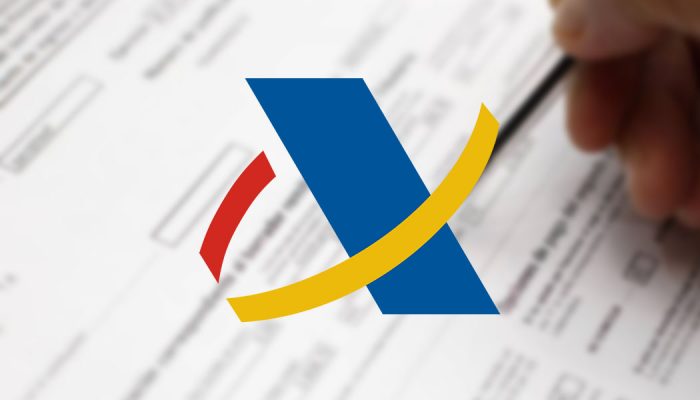A practical, clear, English-language guide for freelancers, creators, e-commerce sellers, and remote workers living and working in Spain.
⸻
⭐ 1. Why Digital Professionals Struggle with Spanish Taxes
Spain is one of the best places in Europe for digital professionals — great climate, strong internet infrastructure, and a huge international community.
But when it comes to taxes and accounting, things get complicated fast.
Most freelancers coming from the UK, US or Northern Europe suddenly face questions like:
- How do I invoice clients in other countries?
- Where do I pay VAT if I sell digital services or products?
- Do I need to register as autónomo even if my clients are abroad?
- What happens if I use PayPal, Stripe, Shopify or Etsy?
- What is VIES and do I need it?
And to make things harder, most gestorías (accounting offices) in Spain don’t specialise in digital work — and very few operate fully in English.
This guide is designed to give digital professionals clear, practical answers.
⸻
⭐ 2. Do You Need to Register as a Freelancer (Autónomo) in Spain?
If you live in Spain and regularly earn money from work — even if all your clients are abroad — you are generally considered tax-resident in Spain.
This means:
✔ You must register as an autónomo
Registration is required when your activity is habitual, recurring, or income-producing.
✔ You pay Spanish income tax (IRPF)
Even if you’re paid by a UK, US or EU client.
✔ You must pay social security contributions
This is your contribution to the Spanish Social Security system.
Everyone working in Spain must contribute based on the income amount, although during the first year of activity a reduced flat rate applies.
✔ Working online for a foreign company does NOT exempt you
If you’re physically in Spain, Spain is usually the place of taxation.
A foreign company cannot normally employ someone who is living permanently in another country unless it sets up a legal structure (or uses an employer-of-record partner).
These structures are costly and rarely worth creating for one remote worker.
The usual solution is for the worker to register as autónomo and operate as an external contractor.
Instead of receiving a monthly payslip from the foreign company, the contractor issues a monthly invoice that must be enough to cover:
- their personal income tax obligations
- their Social Security contributions
In short: If you live and work from Spain, you normally must register as autónomo — even if all your clients are abroad.
Read: Autonomo. Costs & Formalities.
If you need help with autónomo registration, Limit handles the full process for free when you join one of our plans.

⸻
⭐ 3. How to Invoice Correctly as a Digital Professional
Invoices must always follow Spanish rules, even if all your clients live abroad.
Here’s the practical breakdown:
A. Selling to a Spanish client → VAT applies
You must add IVA (21% in most cases).
Some activities (education, healthcare) are tax-exempt, and others may have reduced VAT rates.
Read: Understand IVA, Retentions & Income Tax
B. Selling to an EU business (B2B) with a valid VAT number → Reverse charge
No VAT is added.
Your invoice must include:
“Reverse charge – Article 196 of Directive 2006/112/EC.”
Read: European VAT number and Intra-Community Invoice
C. Selling to an EU consumer (B2C)
VAT depends on the type of service:
- Digital automated services → VAT at the customer’s country (OSS/IOSS may apply)
- Manual services → Spanish VAT
This is one of the most common areas of confusion, especially for online course creators, membership sites, and SaaS businesses.
More information regarding what to include can be found in this article.
Read: IVA on Internet Sales and Electronic Services
D. Selling to clients outside the EU
Usually no VAT applies.
The invoice must state that the service is an export of services.
Summary: Invoicing rules depend on where your client is and what type of service you provide.
⸻
⭐ 4. Cross-Border VAT for Online Work (the Part Nobody Explains Well)
If you work across multiple countries, you may need:
✔ VIES
Allows VAT-free invoicing to EU businesses. Learn more here
✔ EORI
Required for imports and customs declarations — essential for FBA and dropshipping. Learn more here
✔ OSS / IOSS
Simplifies VAT for digital services and EU-wide e-commerce sales.
✔ Reverse charge
When selling B2B to EU companies or when buying digital services from them. This is related to the already mentioned VIES.
✔ VAT on imports
A major issue for Amazon FBA and dropshipping sellers. VAT on imports is paid at customs in most cases. Importers with a high volume should consider registering in the REDEME system, which allows them to avoid paying VAT at customs. Instead, the import VAT is deferred and self-assessed through the monthly VAT return (Modelo 303) in the same period in which the goods are imported, improving cash flow and simplifying treasury management.
None of these systems are intuitive — and many traditional accountants are not used to them.
Digital professionals face complex situations such as:
- Selling online courses to EU consumers
- Offering design or marketing services to UK clients
- Dropshipping from China to the EU
- Running an Amazon FBA business
Limit specialises exactly in these scenarios.
⸻
⭐ 5. Tax Obligations for Digital Professionals in Spain
A typical autónomo must file:
✔ Quarterly returns
- IVA (Modelo 303)
- IRPF (Modelo 130)
- VAT declarations for EU clients (Modelo 349)
✔ Annual returns
- Income tax (Modelo 100)
- Annual VAT summary (Modelo 390)
- Other informatives depending on activity
⸻
⭐ 6. What Expenses Can Digital Professionals Deduct?
Common deductible expenses include:
- Laptop, screens, peripherals
- Software subscriptions (Adobe, Notion, AI tools, hosting, etc.)
- Digital services (domains, cloud storage, SaaS)
- Advertising (Meta Ads, Google Ads)
- Education and professional courses
- Coworking spaces
- Travel linked to your business
- Professional services
Good record-keeping is essential for deductions to be accepted. You will also need to collect and keep valid invoices. A valid invoice needs not meet these two requirements:
1) Ordinary and necessary. It is related to your business activity and necessary to operate.
2) There must be a proper invoice as a documental proof backing the expense, containing all the required information…and very soon; verifactu validated.
Read: What expenses can you offset against tax?
⸻
⭐ 7. Tools and Automation for Digital Workers
Your business likely uses platforms such as:
- Shopify
- Amazon
- Etsy
- Stripe
- PayPal
- WooCommerce
Limit integrates these sources directly with Quipu, allowing:
✔ Automatic syncing of invoices and payments
✔ Real-time data accuracy
✔ Verifactu-ready invoicing
✔ Less manual admin
✔ Better tax compliance
But automation alone isn’t enough.
Our team manually reviews your entries one-by-one, correcting errors and ensuring full compliance.
This combination — automation plus human oversight — keeps your accounting accurate.
No automated tool can replace expert review.
⸻
⭐ 8. Common Mistakes Digital Professionals Must Avoid
- Not being registered in VIES
- Incorrect VAT on EU B2C services
- Not declaring Stripe or PayPal income
- Incorrect invoices
- Not registering as autónomo when required
- Using personal accounts for business expenses
- Misunderstanding VAT on imports for e-commerce
These issues often lead to avoidable fines.
⸻
⭐ 9. Why Digital Professionals Choose Limit
Limit is built specifically for people who work online.
We provide:
- English-speaking support
- Real expertise in digital business
- Integration with your sales platforms
- Fully remote service — wherever you are in Spain
- One-on-one professional review
- VIES, EORI, OSS/IOSS and cross-border VAT knowledge
- Verifactu-ready invoicing
- Real-time bookkeeping oversight
- Unlimited advice
- Predictable monthly pricing
We understand the digital world because we specialise in it.
⸻
⭐ 10. Start Working Smarter — Not Harder
If you’re a digital professional living in Spain, you deserve accounting designed for your reality — not the traditional one.
👉 Check our Local Plan and Cross-Border Plan for freelancers
to see which one fits your business.
Or contact us anytime for advice.
 Limit Consulting
Limit Consulting
